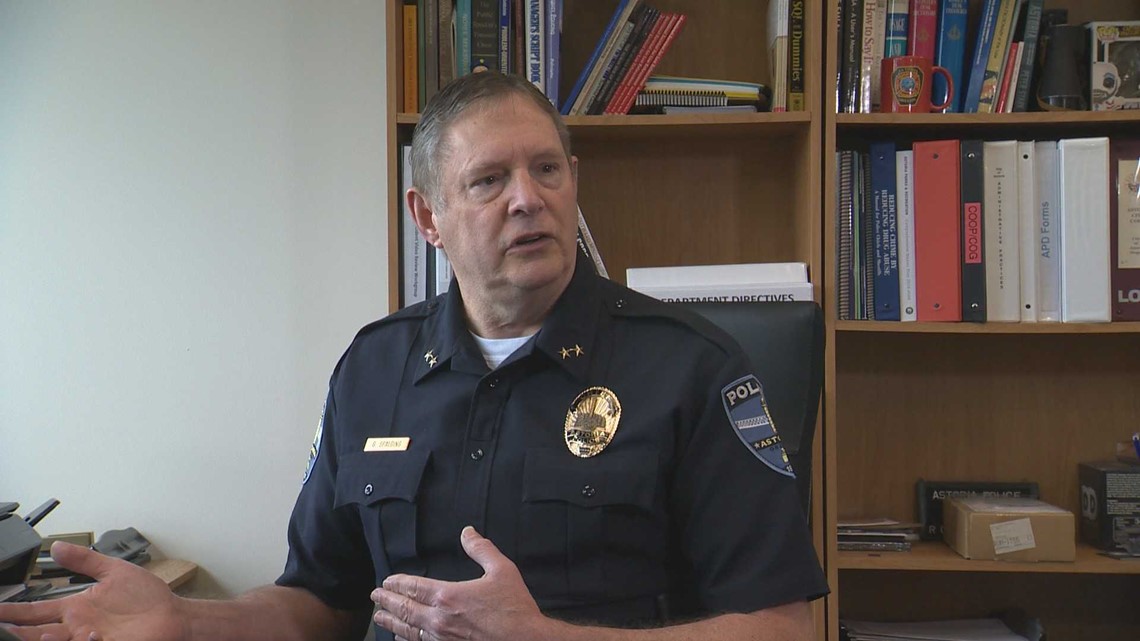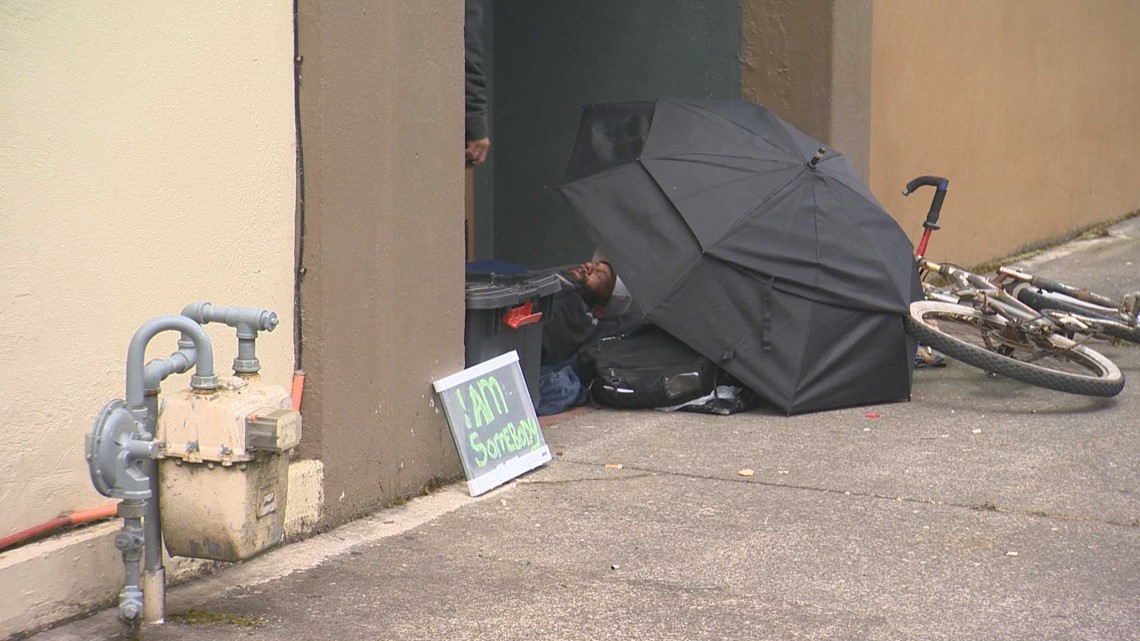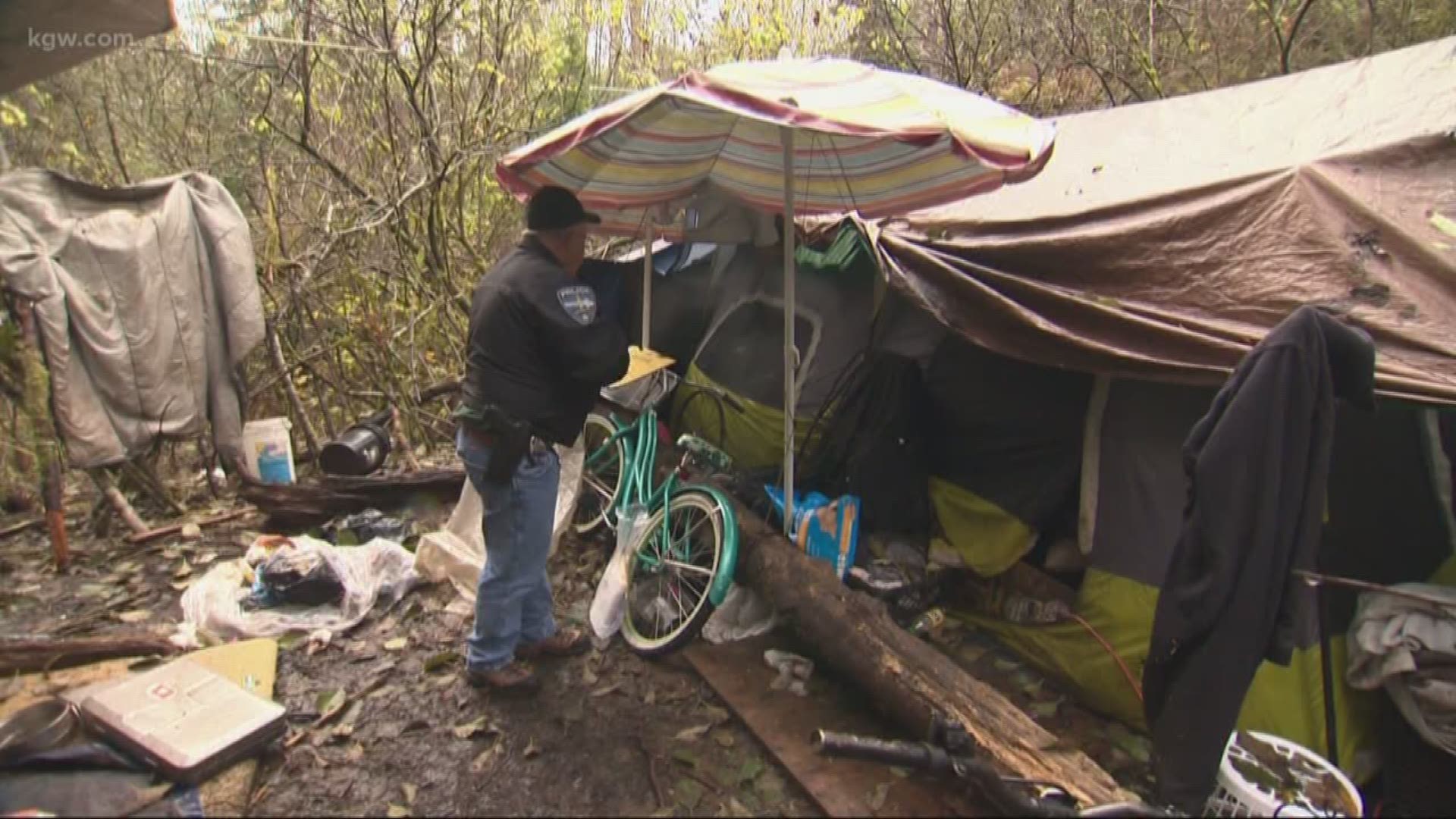ASTORIA, Ore. — According to a new set of codes implemented by the Astoria Police Department in recent months, emergency calls involving homeless people are coming in at a rate three times higher than they did last year.
“This one here tells me we've had 367 homeless-related calls which has already exceeded last year's numbers for the whole year,” said Chief Geoff Spalding, sitting in front of his desktop computer Friday.
Chief Spalding then compiled a second list of calls totaling 29. He couldn’t compare that figure to previous years.The department only started flagging “aggressive” calls involving homeless people in January, a couple months after clearing homeless camps from the forests lining the coastal city.
The designation of “aggressive” is admittedly a subjective term, said Spalding.
He added the vast majority of the city’s homeless are respectful and calm, but that “…more and more they have this feeling of being empowered, they don’t have to leave and they push back…Some of these individuals are urinating on people’s cars or assaultive behavior.”
Those criteria and others qualify calls to be flagged with the number 41, which indicates a homeless person was being aggressive. Calls involving a homeless person in any capacity are flagged with the number 40.
“Now, we can say this isn't just what we've heard from a couple people. We're actually seeing this recorded in the data, and again, it gives us some ideas in terms of how best to deploy our resources,” he said.


Spalding adds the department keeps a list of these calls but doesn’t include names or traditional report numbers. They just note location, date, time and behaviors.
Though confident, he expected pushback tied to concerns about civil liberties and privacy. But he said that kind of response has been minimal.
Mat dos Santos, legal director of the ACLU of Oregon, sent KGW the following statement on Friday, condemning the practice:
"Astoria, like most cities in Oregon, is dealing with a housing crisis. Profiling the homeless and criminalizing activities that are necessary for human survival, like sleeping, eating, and occupying public space, is illegal in Oregon and does nothing to solve the housing crisis. Piling on fines and fees only makes it harder for people to end the cycle of homelessness and get off the streets for good.
"Data collection by law enforcement can provide useful insights, but only if that data is verifiable and not subjective. By the police chief’s own account of the proposed code 41, a new code for “aggressive activity”, is based entirely on each officers’ subjective review of the situation and is not verified for accuracy or checked for consistency. Wholely subjective data is not useful to assess a situation. More troubling is that this type of data can lead to problematic outcomes like more severe punishment and bias in subsequent interactions."
But staff at Astoria-based nonprofit Clatsop Community Action don’t agree, pointing out Astoria PD created these new codes with input from city council members and staff at nonprofits who work with the homeless.
“I think some people may jump to the conclusion that the homeless people are being criminalized,” said executive director Elaine Bruce. “The city's trying to take a balanced approach and deal with the behaviors of people and the issue of their being homeless…it's secondary to the behaviors.”
Chief Spalding said Friday he believes other cities in the US are using similar systems to track calls involving the homeless, and he added he knows some in the Pacific Northwest are looking to follow suit.
The city of San Francisco is reportedly eyeing an app to help them track homeless people looking to get into housing, though participation is voluntary.
A spokesperson for the Portland Police Bureau on Friday said via email, “We do not track calls based on someone’s housing status. Simply put, we don't designate anyone’s status.”
Abe Hoge sat on the sidewalk of downtown Astoria Friday next to a sign that said “I am somebody.”
His bike and belongings surrounding him, he said he doesn't take issue with the new coding system
“We don't really see a problem with it…no. Not us in particular," he said.



